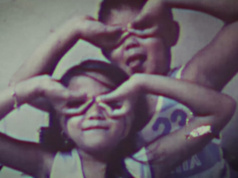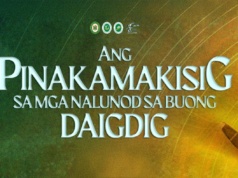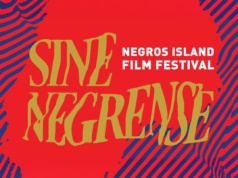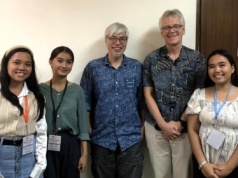The Delegation of the European Union to the Philippines and the Philippines’ Department of Foreign Affairs revealed on October 18 the logo for the commemoration of 60 Years of EU-Philippines Relations in 2024.
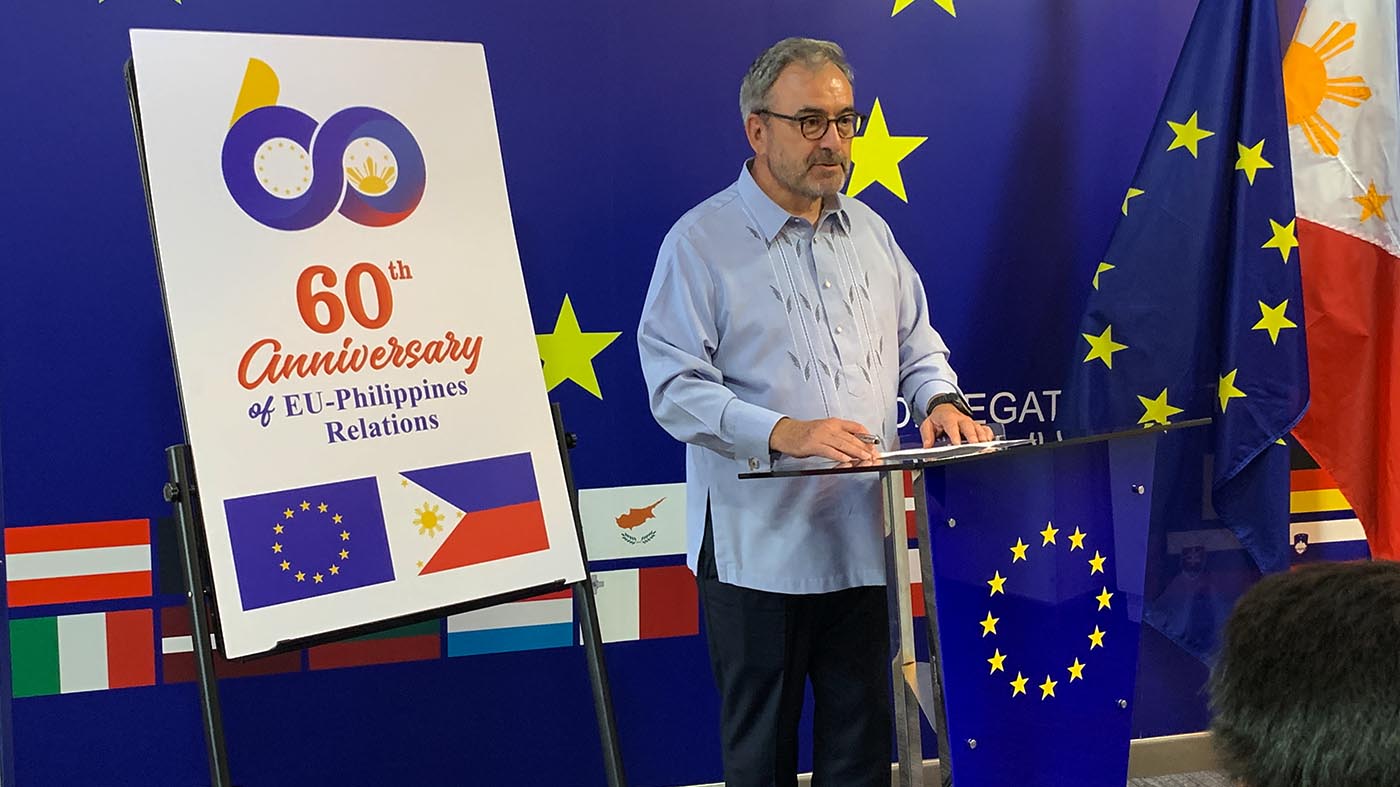
Photo by Bon Labora
H. E. Luc Véron, EU Ambassador to the Philippines and Foreign Affairs Assistant Secretary Ma Elena Algabre announced that the work of Mr Julie Ar Sibala was adjudged as the winner in the logo contest. Runners-up were Czar Julenen Tanamor (first runner-up) and Erick Michael Opeña (second runner-up).
The logo was selected through a competition launched amongst Filipino youth. The works of the participants in the logo competition were evaluated on the basis of relevance to the theme, originality, visual impact, and usability.
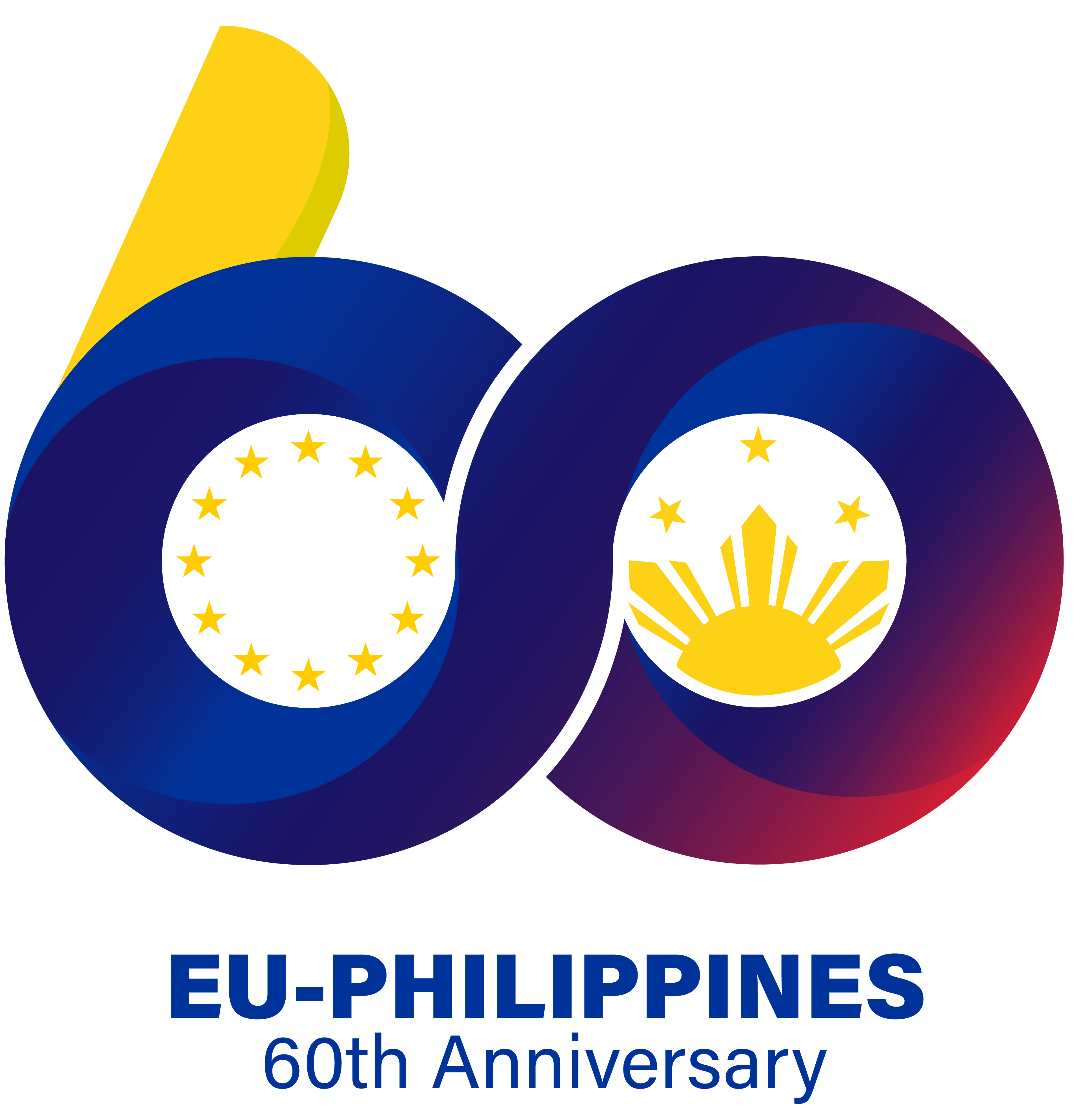
Ambassador Véron commended the works of Filipino youth who joined the logo competition for their innovation and creativity, and the ability to reflect the growing partnership between the EU and the Philippines.
Ambassador Véron said that the deliberation for the winning logo was not easy. Of the winning logo, he said that “it is a thoughtfully designed symbol of the EU-Philippine partnership. Elegant yet simple, intricately crafted but aesthetically pleasing, it serves as a solid representation of how our relationship will continue to progress unabated — and I am confident that my fellow jury members share the same sentiment”.
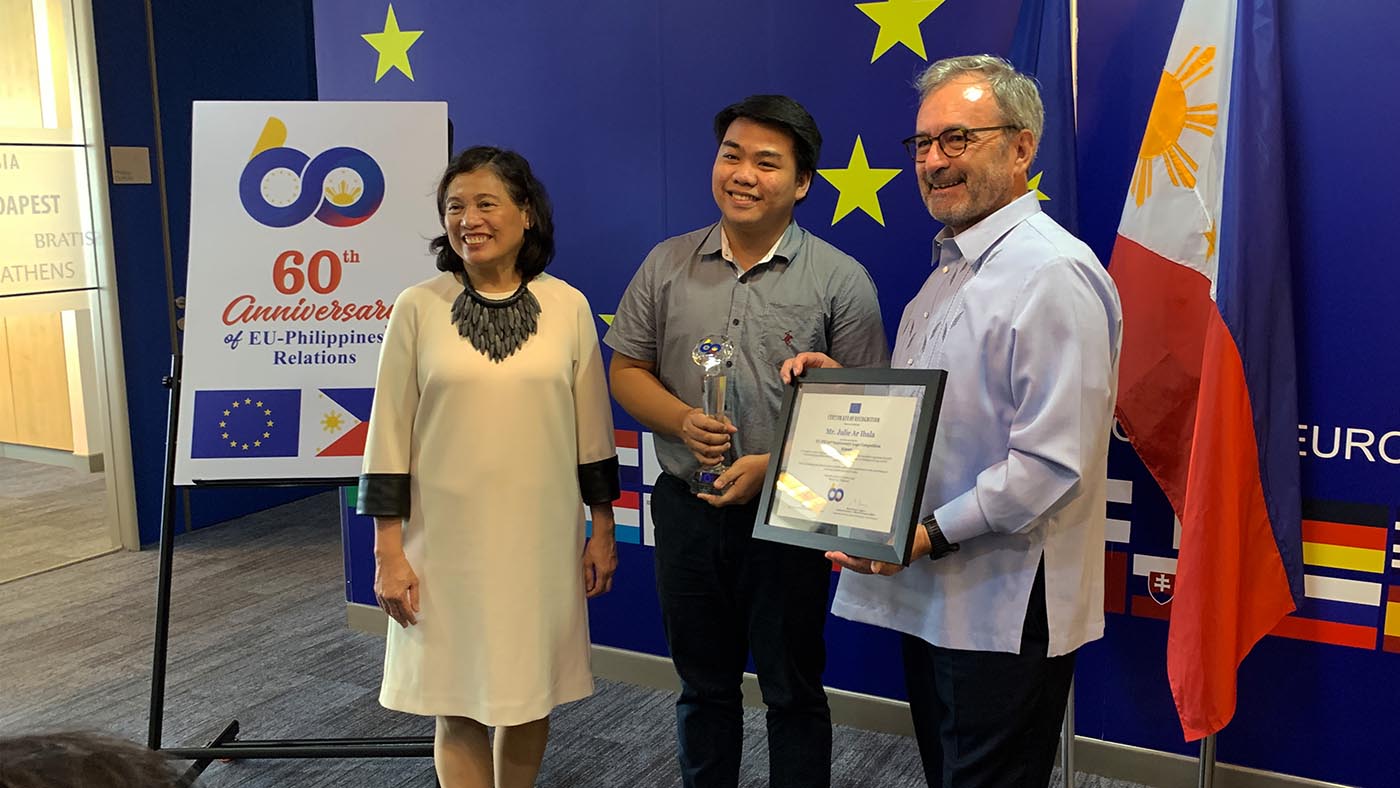
Photo by Bon Labora
Julie Ar is a graphics designer at the University of Immaculate Concepcion (Davao) where he also studied Bachelor of Arts in Communication (Magna Cum Laude).
He drew inspiration from the “unwavering support of the European Union for the Philippines, regardless of the numerous issues and crises our nation has endured”.
The EU continues to stand by us, assisting in peace talks, addressing climate concerns, tackling poverty, fostering youth development, and more, Julie said. This unwavering commitment is represented by the main symbol in my logo, which is the “infinite” sign, he added.
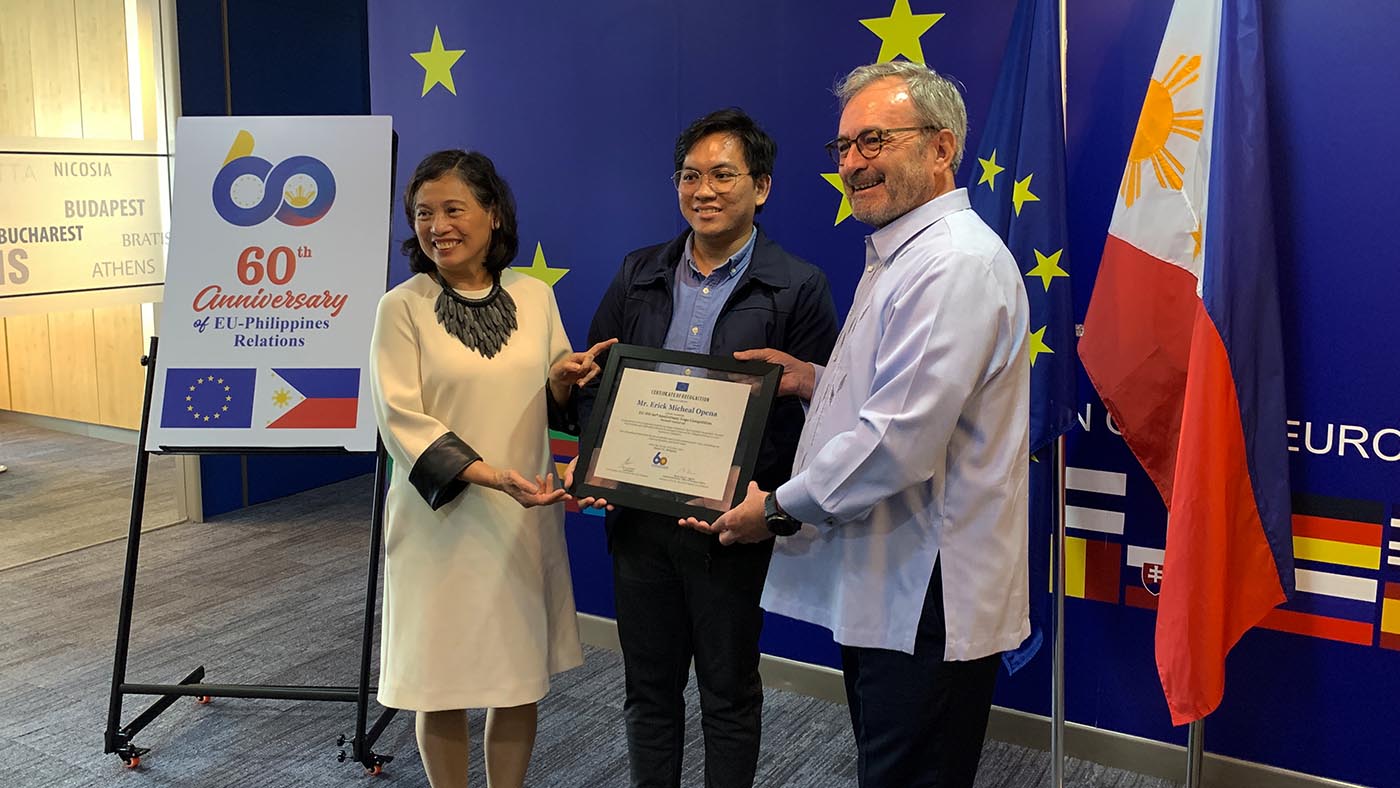
Photo by Bon Labora
Ambassador Véron hosted a luncheon in honor of the winners, Julie and Erick Michael, in his residence in Makati City. Czar, the other runner-up, could not attend the luncheon as he lives in Australia.
The relationship between the EU and the Republic of the Philippines is a longstanding one, which has broadened and deepened remarkably in recent years.
In 2024, the EU and the Philippines will celebrate their 60 years of diplomatic relations. This is a testimony to the enduring nature of the bilateral relationship.

Photo by Bon Labora
In a speech delivered by Ambassador Véron during the awarding ceremonies, he explained the reason for the celebration for the 60 years of the bilateral relationship.
He said “we are commemorating the long list of our joint achievements: we are celebrating how the Philippines is hosting the first Copernicus mirror site in Asia, and how Filipino students constitute among the most numerous worldwide in terms of Erasmus Mundus scholarships won”.
“We celebrate the historic visit of EU Commission President Ursula von der Leyen, and her announcement on the prospective resumption of Free Trade Agreement negotiations. The list extends across six decades—and therefore a symbolic logo is necessary”.

Background
The Philippines and the European Communities established diplomatic relations in 1964. This relationship flourished through the years and people-to-people links have never been stronger through high-level visits, parliamentary interactions, diplomatic engagements, visitors’ programs, academic and cultural exchanges, trade, development cooperation, migration, tourism, and seafaring and humanitarian aid. Meanwhile, the Partnership and Cooperation Agreement between the EU and the Philippines entered into force on 1 March 2018. The Agreement provides a legal framework for the strengthening of the bilateral relationship, in particular on political, social, and economic matters, including human rights. It reflects the longstanding partnership the EU has with the people of the Philippines and the EU’s commitment to investing in a strong and beneficial relationship between the EU and Filipino citizens.

